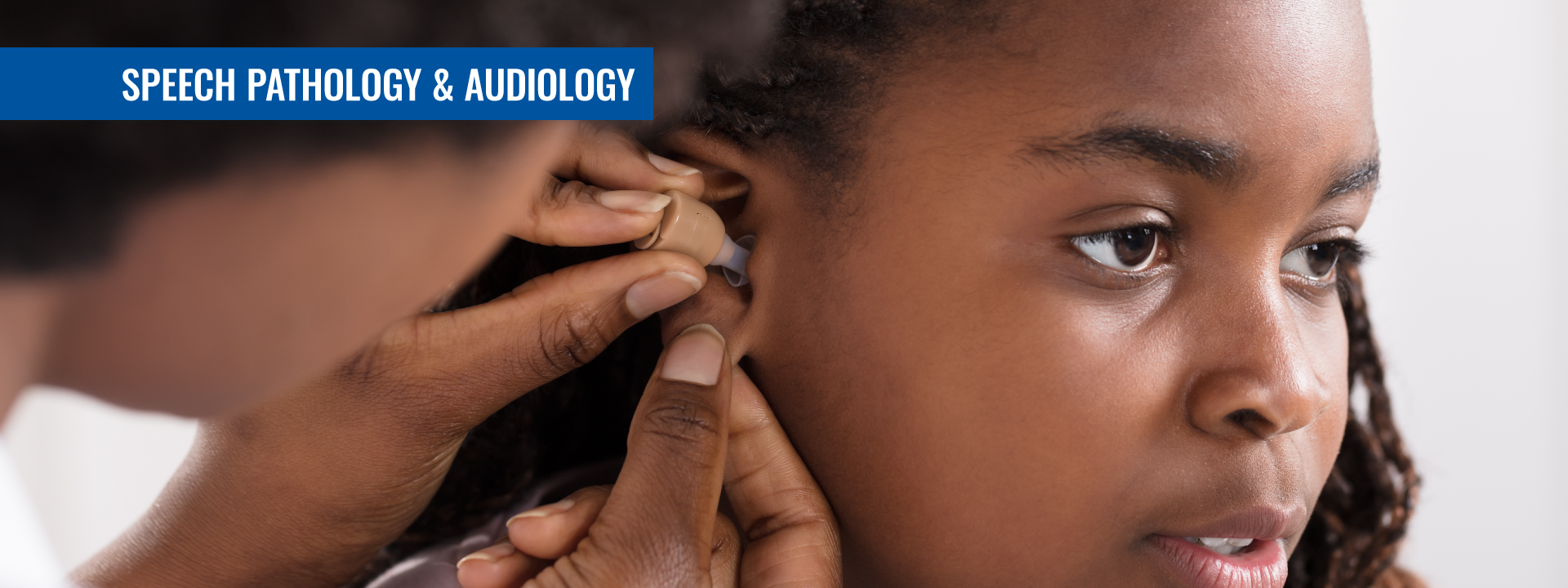What Makes a Good Speech Pathologist? Key Qualities to Look For
What Makes a Good Speech Pathologist? Key Qualities to Look For
Blog Article
Exactly How a Speech Pathologist Can Help Improve Interaction Abilities
Reliable communication is a cornerstone of specialist and individual success, yet several people encounter obstacles that impede their capability to reveal themselves plainly. A speech pathologist is furnished to deal with these barriers through targeted assessment and treatment methods tailored to every individual's needs. By using evidence-based healing methods, they not only function to boost speech and language conditions yet also boost general communicative skills. Comprehending the complex function of a speech pathologist discloses how their experience can change lives, welcoming a closer examination of the particular methods and end results associated with their method.
Understanding Interaction Disorders
Comprehending communication disorders is important for acknowledging exactly how they affect individuals' capability to share themselves and involve with others. Communication conditions include a large array of problems that influence speech, language, and social interaction, typically hindering efficient communication. These conditions can occur from various variables, consisting of neurological conditions, developing delays, physical disabilities, or emotional problems.
Speech conditions may show up as problems in expression, fluency, or voice production, affecting exactly how words are obvious or spoken. Language disorders, on the other hand, entail difficulties in understanding or using language, which can hamper both spoken and non-verbal communication. Social communication disorders are characterized by difficulties in the practical elements of interaction, such as taking kip down discussion or understanding social signs.
The repercussions of communication problems are profound, influencing not only the person's capacity to share ideas and emotions yet also their social connections, educational possibilities, and overall lifestyle. Recognition of these problems can promote empathy and support, encouraging reliable approaches for interaction and involvement. Understanding the complexities of interaction conditions is a critical action towards advertising inclusivity and addressing the requirements of those impacted.
Duty of a Speech Pathologist
Speech pathologists regularly play an essential duty in identifying and dealing with communication disorders, using a series of evidence-based methods customized per individual's requirements. These experts deal with people across the life expectancy, from children with speech delays to adults recuperating from strokes or distressing brain injuries. Their knowledge encompasses a selection of interaction problems, consisting of articulation, fluency, language, and voice conditions.
In therapeutic settings, speech pathologists utilize organized interventions developed to enhance communication abilities. They might implement approaches such as speech workouts, language games, and social interaction training to facilitate renovations in responsive and meaningful language capacities. Speech Pathologist. Additionally, they educate clients and their family members about reliable interaction techniques and adaptive approaches to browse daily interactions
Beyond straight therapy, speech pathologists collaborate with various other healthcare professionals, caregivers, and educators to guarantee a thorough technique to treatment. They support for customers by giving sources and assistance, making it possible for people to attain their interaction objectives and enhance their total quality of life. As professionals in the area, speech pathologists are necessary in fostering effective communication, promoting self-reliance, and improving social participation for those with communication difficulties.
Evaluation and Medical Diagnosis Process
The evaluation and diagnosis procedure performed by speech pathologists usually entails a thorough evaluation to identify communication conditions properly. This process starts with a thorough medical history, where the clinician gathers pertinent details concerning the official website individual's clinical, educational, and developmental history. Recognizing the context of the individual's communication difficulties is essential for an exact diagnosis.
Adhering to the case background, speech pathologists use casual evaluations and standardized tests to review numerous aspects of interaction, including speech sound production, language comprehension, meaningful language, and social interaction abilities. These assessments are tailored to the individual's age and particular worries, giving important information for evaluation.
Monitoring is additionally a crucial part of the evaluation process, as it allows the clinician to see direct exactly how the private interacts in natural settings. In addition, interviews with relative and instructors can supply insight right into the individual's interaction obstacles across different settings.
Once the examination is full, the speech pathologist synthesizes the findings to figure out a diagnosis and recommend proper treatments. This thorough analysis process guarantees that individuals get targeted support tailored to their special communication demands, laying the foundation for reliable healing strategies.
Therapeutic Strategies and Techniques
Countless therapeutic methods and methods are utilized by speech pathologists to address a variety of communication conditions efficiently. One widely used method is articulation therapy, which focuses on fixing speech sounds via rep and visual signs. This strategy is especially useful for people with speech sound problems.
An additional effective technique is language treatment, which enhances both receptive and expressive language skills. This might involve interactive tasks that promote vocabulary advancement, sentence framework understanding, and conversational skills. Furthermore, speech pathologists typically make use of social abilities training to boost practical language abilities, allowing people to navigate social communications extra effectively.
Fluency shaping and stuttering adjustment strategies are particularly designed to help those experiencing fluency problems. These approaches help clients establish smoother speech patterns and manage the emotional and physical elements of stuttering.
Additionally, augmentative and alternative communication (AAC) systems are used for individuals with severe interaction disabilities. These systems, which can include motions, signs, or digital gadgets, give crucial assistance for reliable interaction.
Advantages of Speech Treatment

Additionally, speech therapy can aid in creating essential listening and understanding abilities, cultivating far better communication in discussions. People with cognitive-communication conditions can likewise profit, as treatment focuses on strengthening memory and analytic capabilities, important for effective communication.
An additional vital facet is the emotional assistance given throughout therapy sessions. Speech pathologists produce a safe setting, encouraging patients to overcome anxiety and irritation related to their interaction issues. This assistance article source can cause improved self-esteem and overall mental wellness.
Moreover, early intervention with speech therapy can prevent more problems, ensuring that people reach their complete communicative possibility. In general, the benefits of speech treatment expand past mere speech improvement, positively affecting various measurements of life for those affected by interaction troubles.
Final Thought
In recap, speech pathologists play a vital duty in addressing communication problems via assessment, diagnosis, and tailored healing interventions. By using evidence-based techniques, these professionals enhance individuals' speech and language capabilities, promoting improved quality, fluency, and social interaction abilities. The benefits of very early treatment highlight the importance of looking for support from speech pathologists, as their he has a good point competence can dramatically enhance communicative capacity, ultimately leading to higher success in both specialist and individual spheres.

Speech pathologists frequently play an essential duty in dealing with and diagnosing communication disorders, using a range of evidence-based techniques tailored to each person's requirements. As specialists in the field, speech pathologists are vital in promoting effective communication, advertising freedom, and improving social involvement for those with interaction difficulties.

Report this page